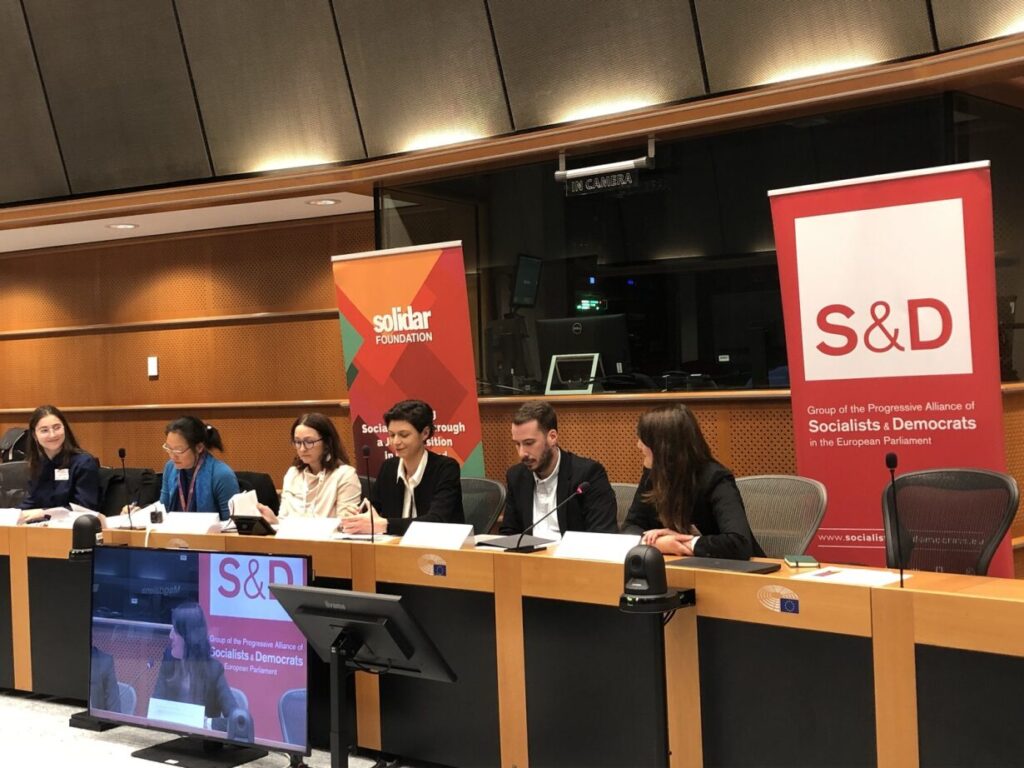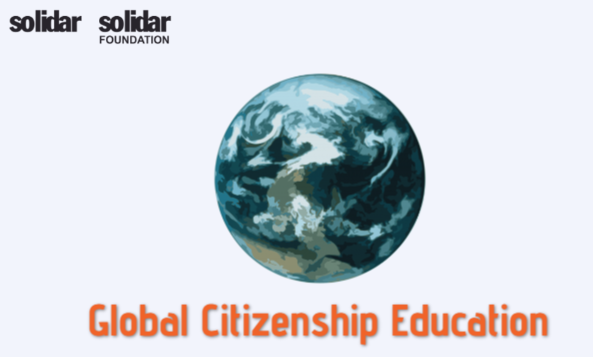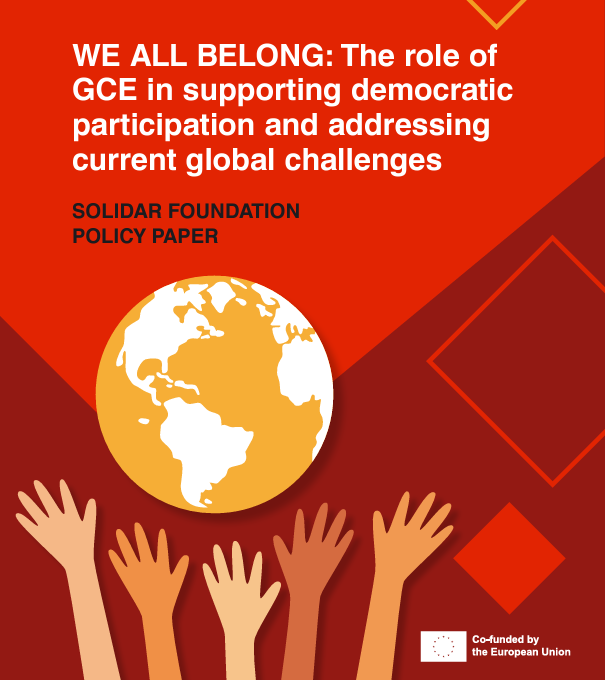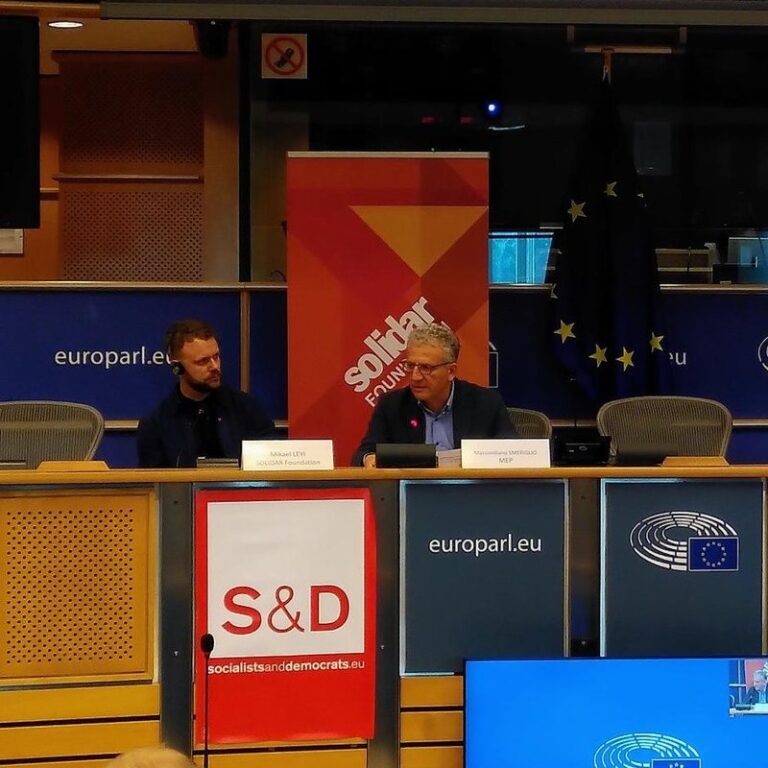Thematic Conference | Global Citizenship Education: From Research to Policy

On 16 November, during the Global Education Week 2023, SOLIDAR Foundation presented its Policy Paper on Global Citizenship Education at the annual thematic conference. Being the culmination of a year-long work on the topic, the Policy Paper WE ALL BELONG: The role of GCE in supporting democratic participation and addressing current global challenges discusses recent policy developments connected to GCE at European level, including a reflection on the relevance of GCE delivered in informal and non-formal education for supporting democratic participation and addressing the current global challenges.
The Global Citizenship Education conference brought together policymakers, experts and civil society representatives, to discuss the research and existing trends and challenges of GCE, as well as opportunities and ways to go forward at the policy level. In this context, Rocío Cervera, Deputy Executive Director, North-South Centre, CoE, noted the fundamental role of CSOs in advocating for GCE, since most of the work is done at the non-formal and informal levels. When looking at the rest of the world and talking about learners first, there is an immense challenge: most learners are not in schools. Therefore, one needs to think of alliances, unite efforts for advocacy and gain the ability to reach out to the people that are not acquiring formal education.
Highlighting the inclusion of marginalized groups as a Policy Recommendation, Daria Arlavi, Policy Officer, DG EAC noted that normally, the focus lies on the EU dimension of learning, but the challenges are not limited to the EU and rather extended to the whole globe, and naturally in the marginalized communities. In this context, CSO’s work is greatly appreciated since they create and support the community activities that are, sometimes, the only opportunities to engage and enhance civic competences.
Further referring to the global dimension of education, Thaïs Leray, Team Leader, DG INTPA, mentioned that when conflicts take place, they have repercussions across the world: they enhance the feelings of insecurity and contribute to the polarisation of our society. In this context, challenges can be tackled only by looking at the interconnectedness between our societies and cross-cutting concerns. In this respect, GCE a powerful tool to embrace today’s challenges, but it is also important to expand on the existing practices.
Ditta Trindade, Global Education Specialist, GENE, welcomed the recommendation for a critical stance towards GCE and the transnational, postcolonial/decolonial and intersectional approaches presented in the SOLIDAR Foundation’s Policy Paper, points that are in line with GENE’s work on global education among policymakers, inspiring them and also enabling access to quality education in Europe.
On behalf of the Centre for Peace Studies, Croatia, Lana Jurman underlined the risk of slipping to uncritical GCE due to teachers not feeling empowered to work on topics that are controversial. At the policy level, she would like to see that education is put at the forefront as a priority, within the next year. From the EU institutions, more focus on providers of non-formal and informal education would be great to see. Moreover, Ms. Jurman would like to see research on the state of play on GCE across member states but also on citizenship competences. And continuing the efforts, they should result in evidence-based policy.
As the conference represented an opportunity to endorse the Joint Declaration of Advocacy launched by SOLIDAR Foundation, some participating organisations and S&D MEP João Duarte Albuquerque took part in the process and pledged their support. Therefore, the Policy Recommendations on Global Citizenship Education, presented in the Policy Paper, received support from partners and partner organisations.
S&D MEP João Duarte Albuquerque concluded the conference with the criticism that the issue was aggravated by introducing capitalist gains in learning experiences. Instead of training competences such as critical thinking and problem solving, the focus is unfortunately on grades and ways of fitting in the formal education system. He highlighted that key competences and citizenship education cannot be separated and should be at the core of the education system, which calls for the need to train teachers and to have the adequate competences to deal with the global issues.
Click on the downloadable report of the Conference to learn more about the discussion!





